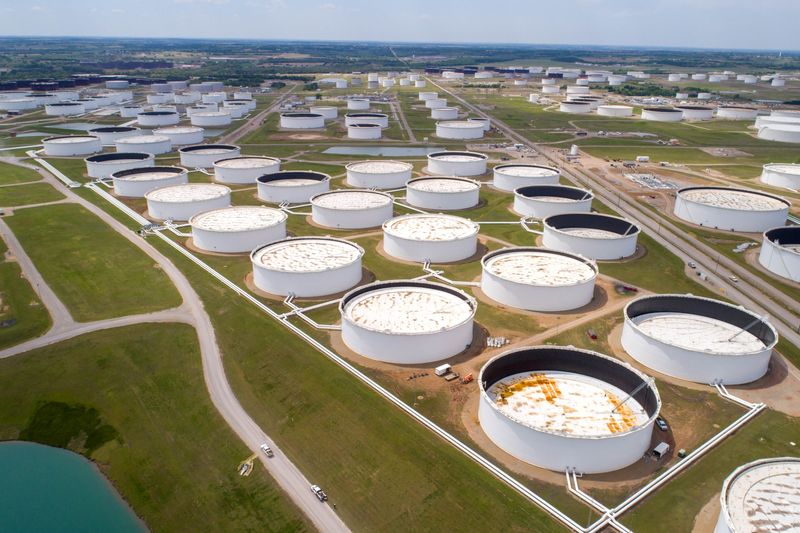HOUSTON (Reuters) -Oil prices tumbled more than 4% to a near two-week low on Tuesday due to a weaker demand outlook and after a media report said Israel would not strike Iranian nuclear and oil sites, easing fears of a supply disruption.
futures settled down $3.21, or 4.14%, at $74.25 a barrel. West Texas Intermediate futures finished down $3.25, or 4.4%, at $70.58 a barrel.
Both benchmarks had earlier fallen by $4, reaching their lowest since the beginning of October, after settling about 2% lower on Monday.
“We’re seeing an unwinding of the war premium we built up last week,” said Phil Flynn, senior analyst at Price Futures Group. “What we’re seeing, it’s not really about supply, it’s about the risk to supply and demand.”
Brent and WTI are down about $5 so far this week, nearly wiping out cumulative gains made after investors became concerned Israel could strike Iran’s oil facilities in retaliation for Tehran’s Oct. 1 missile attack.
Israeli Prime Minister Benjamin Netanyahu told the United States that Israel was willing to strike Iranian military targets and not nuclear or oil ones, the Washington Post reported late on Monday.
Both the Organization of the Petroleum Exporting Countries and the International Energy Agency this week cut their forecasts for global oil demand growth in 2024, with China accounting for the bulk of the downgrades.
OPEC has projected a much stronger expansion of global demand for the year than the IEA. But its “run of lower adjustments is something of an admission of wishful thinking,” said John Evans at oil broker PVM.
OPEC and its allies, known as OPEC+, may change production plans for late this year, said Andrew Lipow, president of Lipow Oil Associates.

“I think OPEC+ is going to defer raising production later this year,” Lipow said.
Current crude prices are below levels needed for many of those countries to meet their national budgets, Lipow added.

